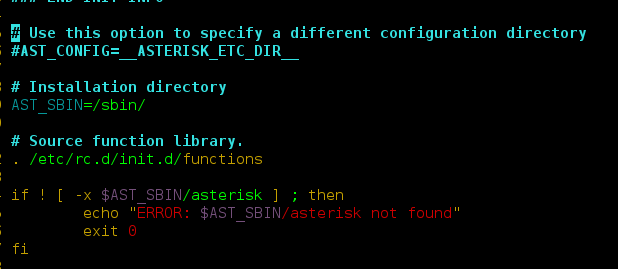Given an array arr[], the task is to find the longest subsequence with a given OR value M. If there is no such sub-sequence then print 0.
Examples:
Input: arr[] = {3, 7, 2, 3}, M = 3
Output: 3
{3, 2, 3} is the required subsequence
3 | 2 | 3 = 3
Input: arr[] = {2, 2}, M = 3
Output : 0
Naive approach: A simple way to solve this problem is to generate all the possible sub-sequences and then find the largest among them with the required OR value.
Efficient approach: One key observation is that all of the numbers in the required sub-sequence should yield the value M when they get ORed with M. So filter out all of such elements whose OR with M equals to M.
Now, the task is to find the longest sub-sequence among this filtered subset. It’s pretty obvious that all of these numbers will be ORed together. If the result of this OR is M then the answer will be equal to the size of this filtered set. Otherwise answer will be 0. This is because OR only sets the unset bits. So, the larger the numbers in the set, the more optimal it is.
Below is the implementation of the above approach:
C++
// C++ implementation of the approach#include <bits/stdc++.h>using namespace std;// Function to return the required lengthint findLen(int* arr, int n, int m){ // To store the filtered numbers vector<int> filter; // Filtering the numbers for (int i = 0; i < n; i++) if ((arr[i] | m) == m) filter.push_back(arr[i]); // If there are no elements to check if (filter.size() == 0) return 0; // Find the OR of all the // filtered elements int c_or = filter[0]; for (int i = 1; i < filter.size(); i++) c_or |= filter[i]; // Check if the OR is equal to m if (c_or == m) return filter.size(); return 0;}// Driver codeint main(){ int arr[] = { 7, 3, 3, 1, 3 }; int n = sizeof(arr) / sizeof(int); int m = 3; cout << findLen(arr, n, m); return 0;} |
Java
// Java implementation of the approachimport java.util.*;class GFG{// Function to return the required lengthstatic int findLen(int arr[], int n, int m){ // To store the filtered numbers Vector<Integer> filter = new Vector<Integer>(); // Filtering the numbers for (int i = 0; i < n; i++) if ((arr[i] | m) == m) filter.add(arr[i]); // If there are no elements to check if (filter.size() == 0) return 0; // Find the OR of all the // filtered elements int c_or = filter.get(0); for (int i = 1; i < filter.size(); i++) c_or |= filter.get(i); // Check if the OR is equal to m if (c_or == m) return filter.size(); return 0;}// Driver codepublic static void main(String args[]){ int arr[] = { 7, 3, 3, 1, 3 }; int n = arr.length; int m = 3; System.out.print(findLen(arr, n, m));}}// This code is contributed by Arnab Kundu |
Python3
# Python3 implementation of the approach # Function to return the required length def findLen(arr, n, m) : # To store the filtered numbers filter = []; # Filtering the numbers for i in range(n) : if ((arr[i] | m) == m) : filter.append(arr[i]); # If there are no elements to check if (len(filter) == 0) : return 0; # Find the OR of all the # filtered elements c_or = filter[0]; for i in range(1, len(filter)) : c_or |= filter[i]; # Check if the OR is equal to m if (c_or == m) : return len(filter); # Driver code if __name__ == "__main__" : arr = [ 7, 3, 3, 1, 3 ]; n = len(arr); m = 3; print(findLen(arr, n, m)); # This code is contributed by AnkitRai01 |
C#
// C# implementation of the approachusing System;using System.Collections.Generic; class GFG{// Function to return the required lengthstatic int findLen(int [] arr, int n, int m){ // To store the filtered numbers List<int> filter = new List<int>(); // Filtering the numbers for (int i = 0; i < n; i++) if ((arr[i] | m) == m) filter.Add(arr[i]); // If there are no elements to check if (filter.Count == 0) return 0; // Find the OR of all the // filtered elements int c_or = filter[0]; for (int i = 1; i < filter.Count; i++) c_or |= filter[i]; // Check if the OR is equal to m if (c_or == m) return filter.Count; return 0;}// Driver codepublic static void Main(){ int []arr = { 7, 3, 3, 1, 3 }; int n = arr.Length; int m = 3; Console.Write(findLen(arr, n, m));}}// This code is contributed by Mohit kumar 29 |
Javascript
<script>// Javascript implementation of the approach// Function to return the required lengthfunction findLen(arr, n, m){ // To store the filtered numbers var filter = []; // Filtering the numbers for (var i = 0; i < n; i++) if ((arr[i] | m) == m) filter.push(arr[i]); // If there are no elements to check if (filter.length == 0) return 0; // Find the OR of all the // filtered elements var c_or = filter[0]; for (var i = 1; i < filter.length; i++) c_or |= filter[i]; // Check if the OR is equal to m if (c_or == m) return filter.length; return 0;}// Driver codevar arr = [7, 3, 3, 1, 3 ];var n = arr.length;var m = 3;document.write( findLen(arr, n, m));</script> |
4
Time Complexity: O(n)
Auxiliary Space: O(n)
Ready to dive in? Explore our Free Demo Content and join our DSA course, trusted by over 100,000 neveropen!




